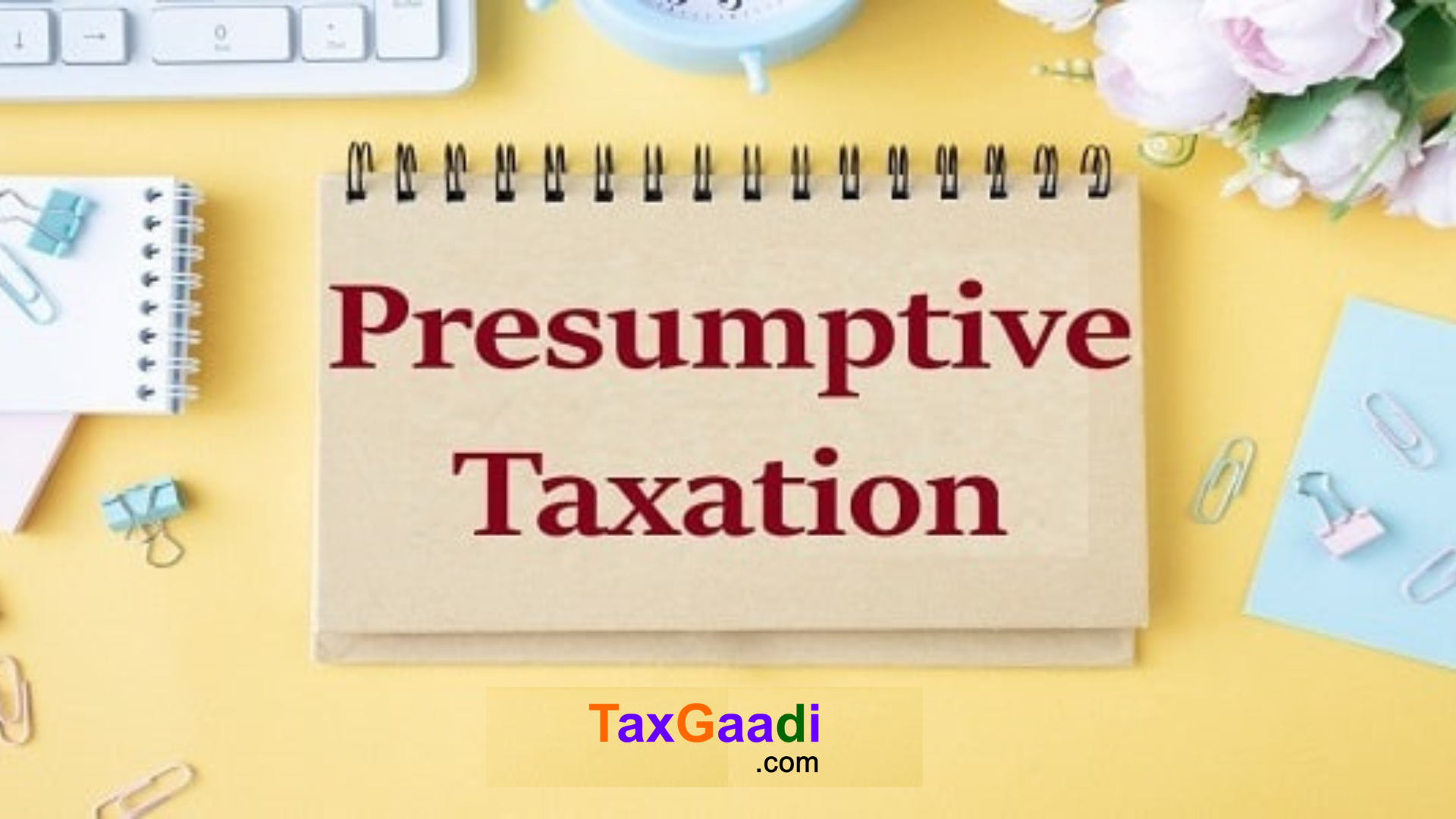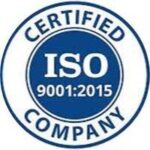Presumptive Taxation for Business and Profession
Section I: Businesses
Setting up a new venture one of the first questions you encounter when you begin your business is what legal entity it should be set up as. Depending on the nature and size of the business some of the legal entity options available are:
a. Sole Proprietorship
b. Limited Liability Partnership
c. Private Company
d. Public Company
e. Joint Venture
As such, there is no legal rule that a ‘company’ must be formed to start a business. Incorporating a company has its own pros and cons. Forming a company increases compliance work. If your business is growing rapidly and becomes unmanageable, it helps to separate it into a separate legal entity which will have its own PAN and will file a separate tax return. Else you may choose to carry on your business as a sole proprietor.
Maintaining Books of Accounts
If as a business any of the following criteria are met, then maintaining the books of accounts as per the income tax act is mandatory:
a. Income is more the Rs. 1,20,000; or
b. Total sales, turnover or gross receipts are more than Rs. 10,00,000. In any of the three immediately preceding previous years. This condition has further been relaxed for individuals and HUF where they will be bound by the mandate of maintaining books of accounts only if :
a. Income is more than Rs 2.5 lakhs or
b. Total sales, turnover or gross receipts are greater than Rs 25 lakhs in any of the three immediately preceding previous years.
Note:
The penalty for non-maintenance of books of accounts:
If you have not maintained the accounting records which you should have maintained as per law, you would be liable for a penalty of up to Rs 25,000.
Tax Audit
For businesses having gross receipts of more than Rs 1 crore in a financial year are liable for tax audit.The due date of filing the tax audit report is 30th September of the assessment year. The tax audit report must be filed electronically via Form 3CD. For taxpayers subject to tax audit, the due date for filing of return of income is also 30 September of the assessment year.Under normal circumstances, revision of a tax audit report is not possible. However, in cases where the accounts have been revised it is possible to revise the tax audit report.
Due Date
- Due date for filing of tax audit report – 30th September of the assessment year
- Due date for return filing (if tax audit is applicable) – 30th September of the assessment year
- Due date for return filing (if tax audit is not applicable) – 31st July of the assessment year
Presumptive Taxation
Presumptive taxation for businesses is covered under section 44AD of the income tax act. Any business which has a turnover of less than Rs 2 crore can opt to be taxed presumptively. They must declare profits of 8% for non-digital transactions or 6% for digital transactions, whichever one is applicable. The following businesses are excluded from presumptive taxation:
a. Life insurance agents.
b. Commission of any kind.
c. Running the business of plying, hiring or leasing goods carriages.
Computation of Presumptive Taxation
Example:
Lalit Traders have gross receipts of Rs 1.5 Crore for FY 2017-18 and do not maintain books of accounts. Lalit traders have opted for presumptive taxation. During the year Lalit Traders received Rs. 70 Lakhs through non-digital transactions (cash payments) and Rs. 80 Lakhs through digital transactions.
What will be the income under the head business and profession?
Solution:
Income under the business and profession:
For non-digital transactions : 70,00,000 * 8% = Rs. 5,60,000
For digital transactions : 80,00,000 * 6% = Rs. 4,80,000
Income under the head “Business or Profession” will be = Rs 10,40,000
Benefits of Presumptive Taxation
- National Defence Fund set up by the Central Government.
- Prime Minister’s National Relief Fund.
- In presumptive taxation under Section 44AD, your net income is considered as 8% of your turnover and you will pay tax on that income.
- If your receipts are in digital (non-cash) form then only 6% of your receipts is your net income and you will pay tax on that income.
- You don’t have to maintain accounting records.
- You don’t have to get your accounting records audited.
- You have to pay advance tax – but instead of estimating income and paying tax each quarter, you can pay all your advance tax before March 31. Advance tax, for taxpayers having opted for the presumptive scheme, is to be paid by 15th March of the relevant financial year if you expect that your income tax liability will exceed Rs.10,000 in the financial year.
International Transaction
TDS deducted by the foreign client
If you work for clients out of India, payments may be received by you via paypal or as a direct credit to your bank account. Mostly, the foreign client would deduct taxes before releasing the payment to you in accordance with the local tax laws there. You, as a resident of India, would anyway be liable to income tax on all your income. However, you can claim credit for taxes paid overseas, in your return of income.
TDS not deducted by the foreign client
If no TDS has been deducted, there is nothing to worry. You need to include these receipts in your total income while making income calculations and pay applicable tax on them since you will be a tax resident of India. To meet advance tax requirements you may have to estimate your annual income from all sources.
Return of Income
An individual of HUF carrying on business will be bound to file his return of income in form ITR 3For a taxpayer who opts for presumptive tax is supposed to file his return in ITR 3
Section II: Professionals
Professions for the purpose of Indian tax laws
- Engineering
- Legal
- Architectural profession
- Accountant
- Medical
- Technical consultant
- Interior decoration
Maintenance of books of accounts
Professionals carrying on specified professions
Professionals carrying on the above mentioned specified professions are required to maintain books of accounts in accordance with Rule 6F of the Income tax Rules. Such professionals will be required to maintain accounting records if gross receipts exceeds Rs. 1.5lakhs in any of the 3 immediately preceding years. In case he has started off with his profession in a particular year and his receipts exceed Rs 1.5 lakhs for that year, he is again supposed to maintain accounting records for that year.
These are the accounting records that have been prescribed under Rule 6F.
i. Cash Book – A book to record all the cash receipts and payments which helps you know your cash balance at the end of the day or end of the month.
ii. Journal – You have to maintain a log of all your day to day transactions . In accounting terms, you have to record all the debits and credits, when you are following the mercantile system of accounting.
iii. Ledger – A book where all your entries flow from journal, has details of all the accounts and simplifies the preparation of your financial statements at the end of a year
iv. You have to maintain photocopies of all the bills or receipts if the value is more than Rs. 25
v. Lastly, you have to maintain the original bills or receipts if the value is more than Rs. 50If you are into the medical professions, you must maintain these additional records too.
vi. Daily case registers with details of patients, fees received, services provided and date of receipt
vii. Stock details of the medicines and other consumable items on the daily basis
Professionals carrying on non-specified professions
If you are carrying on any profession other than those discussed above, you would need to maintain such books of accounts so as to enable an assessing officer to calculate your taxable income as per Income tax laws. However, this mandate would arise only when income, if you are an individual, exceeds Rs. 2.5 lakhs or gross receipts are more than Rs. 25 lakhs in any one of the immediately 3 preceding years.
Computation of Taxable Income
A professional could easily arrive at his taxable “Income under the head Profits and Gains from Business or Profession” by reducing all his profession related expenses from this gross receipts out of the profession. The profession related expenses could be salary (if you have engaged someone), rent for the premises from where you are carrying out your profession, internet expenses, mobile expenses, official travel, lunch expenses (met officially) etc.
Example:
Archana is an interior designer. She has received a gross revenue of Rs 15 lakhs from her profession for the FY 2017-18. She has incurred the following expenses:
- Internet and mobile – RS 25,000
- Salary paid to 2 staff – Rs 3 lakhs
- Rent for premises – Rs 1.5 lakhs
- Lunch expenses – Rs 24,000
- Travel expenses – Rs 1.5 lakhs
Here is how we determine her taxable income from business :
| Particulars | Amount (in Rs) | |
| Gross receipts | 15,00,000 | |
| (-) | Profession-related expenses | |
| Internet and mobile | 25,000 | |
| Salary | 3,00,000 | |
| Rent | 1,50,000 | |
| Lunch expenses | 24,000 | |
| Travel expenses | 1,50,000 | |
| Net Income | 8,51,000 |
This income will be added to other taxable income of Archana, the aggregate sum on which she is supposed to pay her taxes at rates applicable to the income slab she falls under.
Tax Filing
As a professional, the form applicable to you is ITR 3. You will be liable to file your return on or before 31 July of the Assessment Year unless you are subject to an audit under the Income-tax Act.
Applicability of Tax Audit
You would be liable for carrying out a tax audit if your gross revenue from profession exceeds Rs 25 lakhs during any given financial year, Failure to get your books audited can attract a penalty of upto 0.5% of your gross revenue of Rs 1.5 lakhs whichever is lower.
Presumptive Taxation
A professional having a gross revenue upto Rs 50 lakhs can opt for the presumptive scheme of tax wherein he can straightaway offer 50% of the gross revenue as his taxable income and pay taxes as per his slab rates on such income. Once he opts for this scheme, he cannot claim any of the profession related expenses as a deduction again.
Further, anyone opting for this scheme is not bound by the mandate of maintaining books of accounts too. While he is also liable to file his return by 31 July of the assessment year, he must file his return in ITR 4.
Further, he will be liable for tax audit in a scenario where he offers income lesser than the income arrived at on presumptive basis and also his income exceeds the basic exemption limit.
Here is a simple example to help make you understand when this scheme can be opted for:
Example:
Rakesh is a practicing doctor and has an annual income of Rs 30 Lakhs in financial year 2017-18. The actual expenses incurred by Rakesh for running his practice amount to Rs 3,00,000. The tax liability for Rakesh for FY 2017-18 is as follows:
| Particulars | Tax liability with Presumptive taxation | Tax liability without Presumptive taxation |
| Income | Rs. 30,00,000 | Rs. 30,00,000 |
| Expenses | Rs. 15,00,000 (50% of income is eligible for deduction) | Rs. 3,00,000 |
| Taxable income | Rs. 15,00,000 | Rs. 27,00,000 |
| Tax liability | Rs. 2,62,500 (excluding cess) | Rs. 6,22,500 (excluding cess) |
Therefore it is evident that if Rakesh follows presumptive taxation, he will be able to save Rs. 3,60,000 from his tax outgo.
Freelancers Income
Freelancers who are into any of the specified or non-specified professions, get covered under the same rules as applicable to any other full-time specified or non-specified professional be it rules of computation of taxable income and tax liability, maintenance of books of accounts, presumptive tax, return filing etc.
Section III: Others
Glossary of Terms
The Indian income tax law runs into hundreds of pages. There is no good reason for you to spend precious time finding your way through it. Here’s a little glossary to help you master some basic tax terms which can be very handy while filing your tax returns.
Books of accounts
Books of accounts means a record of all income, expenses, assets and liabilities of your business. These financial records are essential for understanding the performance of your business. These may be compulsorily required in some cases.
Deductions
Income from all the five heads is summed up and is called gross total income. From this gross total income, deductions can be claimed. These deductions reduce your total tax outgo since they lower your gross total income. Investments such as PPF, NSC or certain expense like life insurance premium, interest on education loan, medical insurance are allowed as deduction from your gross total income.
Depreciation
When you purchase a capital asset, the benefit of such an asset is usually expected to last more than a year, such assets are ‘capitalized’ and not charged to expenses when they are bought. Every year a small portion of its cost is expensed and is allowed to be reduced from your income. This expense which is charged every year is called depreciation.
Tax Deduction at Source (TDS)
Persons responsible for making payments have to deduct tax before making payment. The tax department wants payers to deduct tax beforehand and deposit it instead of waiting for you (the recipient) to make the tax payment yourself. The recipient of income receives the net amount (after deduction of tax at source). The recipient adds the gross amount to his income. TDS is adjusted against final tax due, since it is tax already deposited on the recipient’s behalf. TDS ensures steady flow of taxes for the government.
Advance Tax
Advance tax means income tax should be paid in advance instead of lump sum payment at year end. It is also known as ‘pay as you earn’ tax. These payments have to be made in installments as per due dates provided by the income tax department.
Form 26AS
Form 26AS has all tax related information of your PAN. It shows how much tax has been received by the government against your PAN. It includes TDS, tax directly deposited by you, refunds made to you etc. You can understand how to view and download your Form 26AS
Tax audit
Tax audit is a review of your financial records by a Chartered Accountant.
Your books must be audited if:
a. You are a professional earning gross receipts exceeding Rs.50 lakhs
b. A Business owner with an annual revenue of over Rs.1 crores
c. You have opted for presumptive taxation, you declare your income below the prescribed percentage but your total income exceeds the basic exemption limit of Rs. 250,000
Digital Signature
While filing the audit report, both the CAs signature as well as yours need to be included. For this, you must get a digital signature. Digital signature certificate come with validity of one/two years.
Defective return notice under 139(9) for freelancers
When you file an income tax return using the ITR-3 Form, and you have ticked against “Are you liable to maintain accounts under section 44AA” but have failed to provide full details in P & L and Balance Sheet sections in the return, your return would be treated to be defective under Section 139(9).
Disclaimer:-
“All the information given is from credible and authentic resources and has been published after moderation. Any change in detail or information other than fact must be considered a human error. The blog we write is to provide updated information. You can raise any query on matters related to blog content. Also, note that we don’t provide any type of consultancy so we are sorry for being unable to reply to consultancy queries. Also, we do mention that our replies are solely on a practical basis and we advise you to cross verify with professional authorities for a fact check.”








